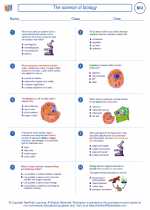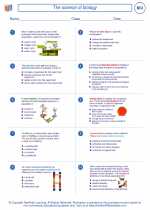Immune System
The immune system is a complex network of cells, tissues, and organs that work together to defend the body against harmful pathogens such as viruses, bacteria, and parasites. It also plays a vital role in identifying and destroying abnormal cells that can develop into cancer.
Components of the Immune System
The immune system consists of two main types of immunity: innate immunity and adaptive immunity.
Innate Immunity
Innate immunity is the body's first line of defense against pathogens. It includes physical barriers such as the skin and mucous membranes, as well as immune cells like macrophages, neutrophils, and natural killer cells.
Adaptive Immunity
Adaptive immunity is a more specific and targeted response to pathogens. It involves the activation of lymphocytes, including B cells and T cells, which produce antibodies and target specific antigens on the surface of pathogens.
Functions of the Immune System
The immune system performs several crucial functions, including:
- Recognizing and responding to pathogens
- Destroying infected or abnormal cells
- Remembering previous infections to provide long-term immunity
- Regulating immune responses to prevent autoimmune reactions
Study Guide
When studying the immune system, it is important to understand the following key concepts:
- Cellular Components: Learn about the different types of immune cells, their functions, and how they interact with pathogens.
- Antibody Production: Understand the role of B cells in producing antibodies and how antibodies help to neutralize pathogens.
- Immune Response: Study the steps involved in the immune response, including the recognition of antigens, activation of immune cells, and the process of phagocytosis.
- Immunological Memory: Explore how the immune system "remembers" previous infections and provides long-term protection against specific pathogens.
- Immune Disorders: Familiarize yourself with common immune system disorders such as autoimmune diseases and immunodeficiency disorders, and understand how they impact the body's ability to fight off infections.
Understanding the immune system is essential for comprehending how the body defends itself against disease and maintains overall health.
.◂Biology Worksheets and Study Guides High School. The science of biology

 Worksheet/Answer key
Worksheet/Answer key
 Worksheet/Answer key
Worksheet/Answer key
